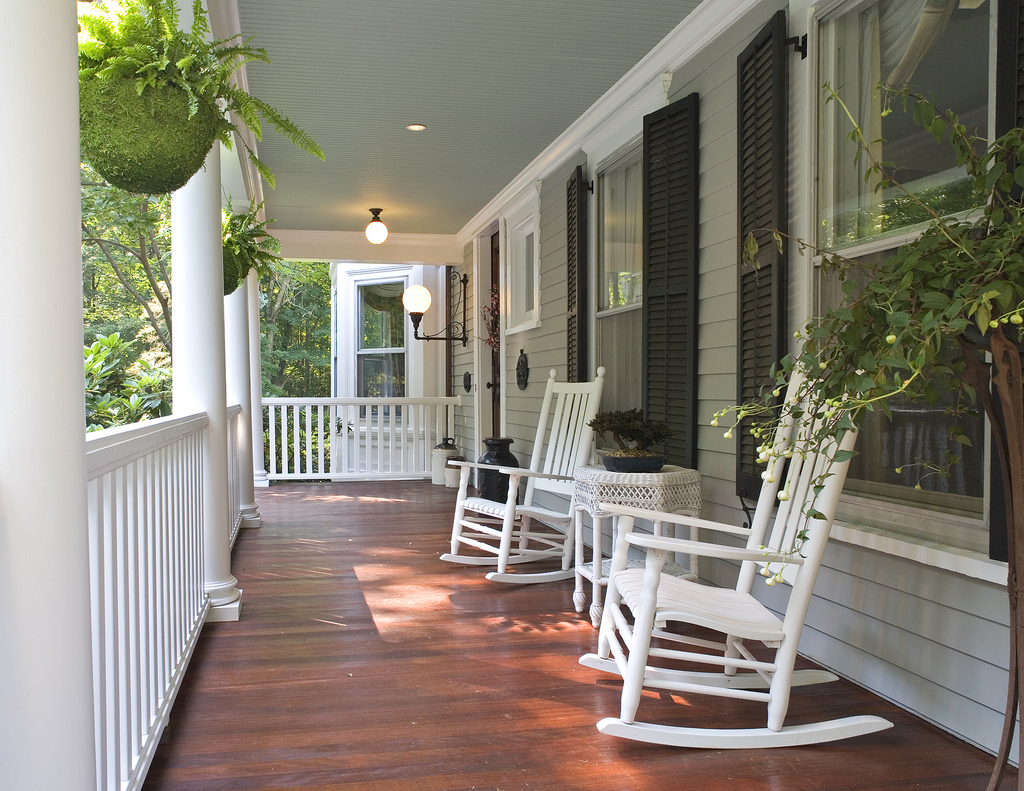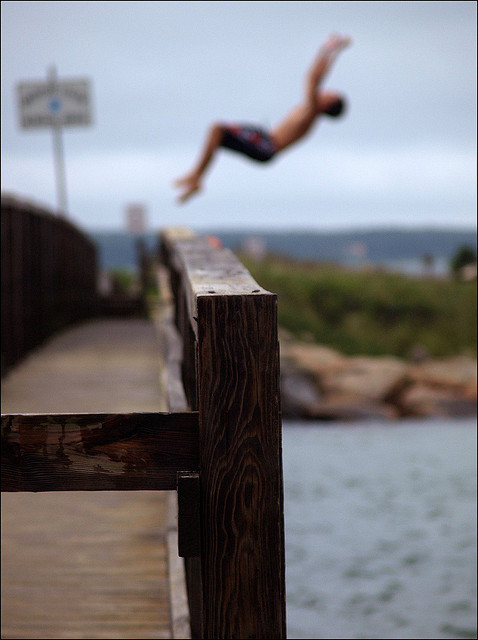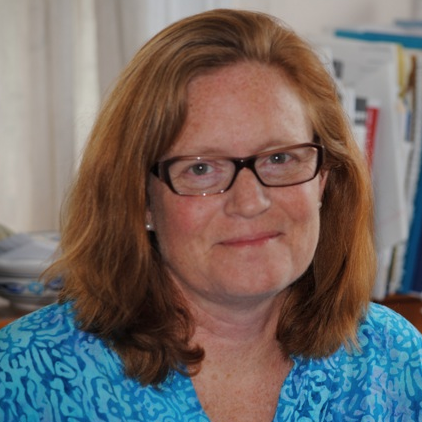Essay by Morgan Baker
The Summer I Got My Learner’s Permit

She always dressed for dinner. She wore Lilly Pulitzer or Polly Watson, often belted with big white beads around her neck. It might be summer on Martha’s Vineyard in the 1970s, but everyone at her table dressed. Shorts and bare feet weren’t tolerated, nor were we to tilt in our chairs.
Dinner was at seven—not a minute before or after. We were never late. Before dinner, Grandma sat on the back porch, overlooking the Vineyard Sound, with her bourbon and water and Wheat Thins or Blue Diamond Almonds while we grandchildren watched TV or played roof ball until she called us in to eat.
Gusta, Grandma’s German cook, made roast beef, ham, mashed potatoes, and yummy carrots, bathed in cream and cooked with butter. Grandma sat at the head of the table and carved. But we always stopped eating when the sun went down.
“Get up,” she’d command. “Look at the sunset.”
She could see it through the picture window from her seat. We’d put down our forks and glasses, push our chairs from the table, and parade to the living room to look out over the flower garden tucked into an old stone sheepfold and the fields—and to the Sound where the sun danced over the horizon. Every night, we watched a different performance as orange, purple, red, and yellow pranced together. The farther into summer we went, the farther down the Sound the show traveled.
On Sundays, we stopped eating for the church bells. “Listen,” Grandma would say.
Our forks stopped moving; we stopped breathing. The bells rang out for the Sunday evening service from the little Methodist church up Lambert’s Cove Road. The bells floated across the meadow between there and us. Some Sundays, the wind brought joy. On some, the bells whispered.
“Ssshh, listen,” Grandma said.
When the main course was done, Grandma rang her little brass dinner bell, and Gusta pushed through the swinging door to clear for dessert—chocolate mousse, peach upside-down cake, chocolate cake roll. Grandma pointed at a grandchild. “You help.”
If she was going out—for drinks, dinner, or bridge—she added big clip-on gold shell earrings to her Lilly or Polly and carried her Nantucket Lightship pocketbook with her wallet and Kleenex stuffed within.
Then she poured herself a bourbon and water, put it in the console between the front seats of her blue Buick Skylark, and took off for Mrs. Look’s in West Tisbury, Mrs. Peltz’s down the road, or across island to Edgartown. Often the eight-track played a French tape so she could improve her vocabulary and accent for her June visits to Provence.
You didn’t argue with Grandma. If she said no wet swimsuits on the couches, we didn’t sit on them when we returned from the beach. If she said rinse your feet before coming inside, we did so in the cast-iron basin at the bottom of the porch stairs.
• • •
I was six when Grandma became a widow and ten when my parents divorced and sold their Vineyard home, all in the 1960s. But she didn’t let anything keep her down for long. With the guidance and support of friends, she ran for political office at 57 and won a Democratic seat in the Connecticut Legislature for four terms.
At the same time, she opened her Vineyard doors to my mother and her children. As the world shifted around me off island, I returned to Grandma’s and my little pink bedroom at the front of her house every summer, whether it was for a week or two months. There, I could count on tennis matches with cousins, water balloon fights with siblings, beach outings with extended family. I kept coming home to Grandma until I was pregnant with my first-born child, when my mother and stepfather built their own house farther up island.
It was from Grandma I learned always to be prepared. She told me to never go anywhere without a book, a bathing suit, and a sweater. You never knew when you’d have to wait for a ride, get invited for a swim, or the weather would change and you’d need extra layers.

• • •
In 1974, the summer I got my learner’s permit, my cousin Betsy and I drove my mother’s dark-green Ford Fairlane station wagon—alone—around Grandma’s driveway in Lambert’s Cove. It was the same circular, pea-stone driveway we walked around at the beginning of every summer to toughen our feet for the barefoot days ahead. Betsy still swears it was me in the driver’s seat. I swear it was her.
We practiced what seemed like harmless circles, the stones crunching under the tires, until the driver—most likely me—scraped the car against the two-car garage. In addition to getting Nantucket blue paint on the fender, we gouged the garage trim—just a little, but enough.
Unnerved by the thought of Grandma’s disappointment, we ran across the grass circle, past the blue hydrangeas by the side of the house, under the back porch, past the garbage cans, and into the musty basement. We searched the dank and dusty shelves for the right can and some brushes.
Betsy and I admired our paintwork on the garage’s wooden trim, then hurried to the kitchen to clean the brushes before Gusta returned from her afternoon at the beach and discovered us in her domain.
But we weren’t prepared for the turpentine smell that lingered in the air.
Quickly, we pulled out a large frying pan and started cooking bacon, hoping to cover one smell with another. The only person who wondered what we were doing was our perpetually confused aunt. She appeared from nowhere with her red hair fizzed out, probably just up from her standard three-hour nap.
“What are you doing?” she asked.
I jumped. “Nothing.”
“Making bacon.” Betsy looked at me and smiled.
“It’s three o’clock in the afternoon,” our aunt said.
“So?” I asked.
Betsy slid greasy bacon strips on toast, and we dug in.
I’m certain Grandma never knew about the accident. She never questioned me about it, never admonished me for my poor judgment. Had I really gotten away with this?
I looked at the mark on the garage for summers to come, wondering if she’d ever catch me. Years later, after my wedding in a small white church farther up island, the best man dropped my new husband and me at Grandma’s front door for our reception. Then he drove the car, another wide-bodied American green tank, to the garage. He misjudged the narrow opening and knocked the garage off its foundation—just a little, but enough.
He hurried down the hill past the hydrangeas to the open field overlooking the Sound, telling us while we swam in champagne and delight.
I just smiled as I looked up to the porch to see Grandma, in her early eighties, sitting there holding court with the other elderly guests. I saw her gazing out over the festivities and fields to the Sound, waiting for the sunset that was to come.
Author’s Note
 I initially started this piece with the car incident—something my cousin and I laugh about a lot to this day. We’re amazed at the lengths we went to in order to avoid getting in trouble. As I worked on this piece, however, my grandmother surfaced more clearly in it, until she and the summers I spent with her became the real focus.
I initially started this piece with the car incident—something my cousin and I laugh about a lot to this day. We’re amazed at the lengths we went to in order to avoid getting in trouble. As I worked on this piece, however, my grandmother surfaced more clearly in it, until she and the summers I spent with her became the real focus.
The most challenging aspect was getting across how much I loved her despite how incredibly bossy she was. She could be pointed and direct, but I always wanted her approval. I wonder now if she would have cared about the garage at all.
Grandma died at 91, but not before she saw my two daughters born, one of whom carries her first name, Mary—as my mother did and I still do, although none of us use it.
The summer before Grandma died, I sat on the back porch with her and thanked her for all the summers she’d given me.
“That’s what grandmothers do, dearie,” she said.
Art Information
- "Sunset at Sea" © NOAA; Creative Commons license.
- "Porch" © Sonja Lovas; Creative Commons license.
- "Second Bridge" © Professor Bop; Creative Commons license.
 Morgan Baker teaches at Emerson College in Boston. Her work has appeared in the Boston Globe, New York Times Magazine, Martha's VIneyard Times, Brain, Child magazine, and elsewhere. She lives with her husband in Cambridge, Massachusetts. She is working on a memoir about breeding the family dog.
Morgan Baker teaches at Emerson College in Boston. Her work has appeared in the Boston Globe, New York Times Magazine, Martha's VIneyard Times, Brain, Child magazine, and elsewhere. She lives with her husband in Cambridge, Massachusetts. She is working on a memoir about breeding the family dog.
A different version of the first scene here (“Dinner with Grandma”) ran in the Emerson Review in 2009.
